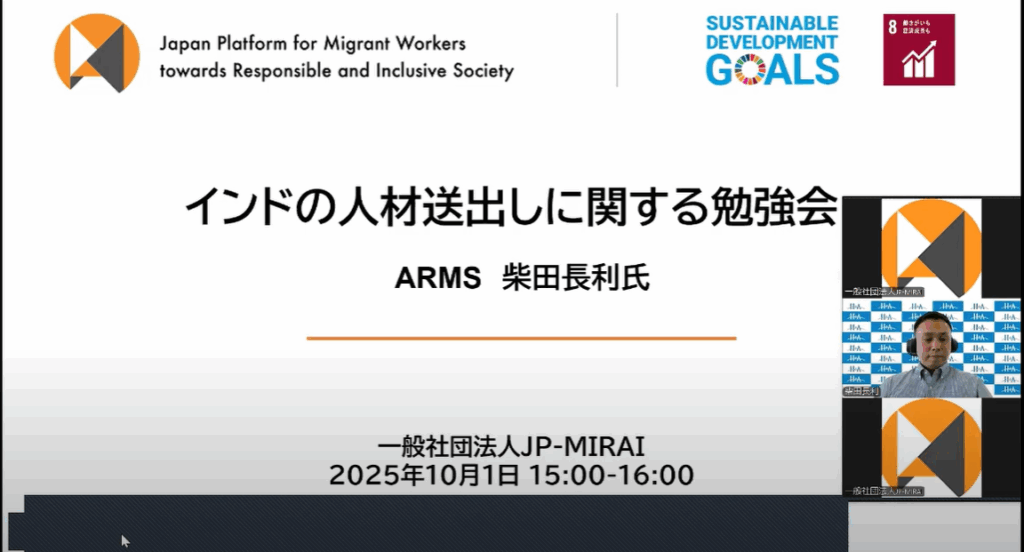On October 1, JP-MIRAI held an online “Study Session on Sending Outbound Workers to India 2”. This time, Mr. Nagatoshi Shibata of ARMS K.K. was invited as a lecturer to talk about “Characteristics of Human Resources in India Based on ARMS’s Outbound Experience”.
Although India is the world’s largest sender of workers, acceptance is still limited, with approximately 35,000 Indians living in Japan, of which only about 1,000 are technical interns and specified skilled workers. There are precedents of graduates with nursing knowledge playing active roles in the nursing care field, and the Northeast Indian region in particular, with its culture similar to that of Southeast Asia, is attracting attention for its high adaptability to Japanese society.
In his lecture, Mr. Shibata introduced the characteristics of human resources in each region (North India = technology-oriented, South India = calm and hardworking, North East India = suitable for interpersonal services), points highly valued by recipient companies, and challenges due to differences in culture and food habits, based on the 521 people sent by ARMS. In the latter half of the session, Mr. Shibata answered questions from the participants in detail, providing an opportunity to deepen understanding of the acceptance of human resources from India.


